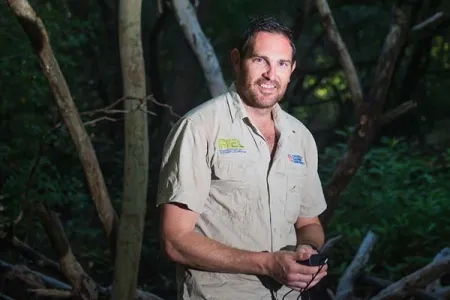NT know-how to reduce SE Asia’s carbon footprint
Harnessing “blue carbon” to help tackle climate change in South East Asia is the focus of a new curriculum developed by Charles Darwin University.
Research Institute for the Environment and Livelihoods researchers Clint Cameron and Ben Brown are the impetus behind an eight-module program designed to train decision-makers in blue carbon and its potential to significantly contribute to reducing the area’s carbon footprint.
Mr Cameron said blue carbon was the carbon sequestered and stored by coastal marine ecosystems such as mangroves, seagrass and salt marshes.
“Put simply, mangroves store a lot of carbon, much more than most forests. Mangroves occupy only half a per cent of the world’s forest area but sequester upwards of 50 times more per unit area than a rainforest,” he said.
“Protecting and rehabilitating mangroves in countries such as Indonesia, the Philippines, and Papua New Guinea can help mitigate the impacts of climate change.”
South East Asia’s coastal ecosystems were under threat with many mangroves increasingly converted to aquaculture ponds or oil palm plantations.
Most aquaculture ponds were operational only for three to 10 years before being abandoned. However, rehabilitating abandoned aquaculture ponds back to mangroves could help restore the vital ecosystems that coastal communities relied on.
Mr Brown said the pilot training was held at the Coral Triangle Centre in Bali, Indonesia in early September with moves afoot to expand the training to other countries over the next 12 months.
“Our aim is to show regional decision-makers how important it is to protect these ecosystems and the important part they play in mitigating the effects of climate change,” he said.
“Not only are they better at storing carbon than most forests but cutting them down also causes the release of more greenhouse gases than deforestation.”
CDU has partnered with the International Partnership for Blue Carbon and the Coral Triangle Centre to develop the program and training.
